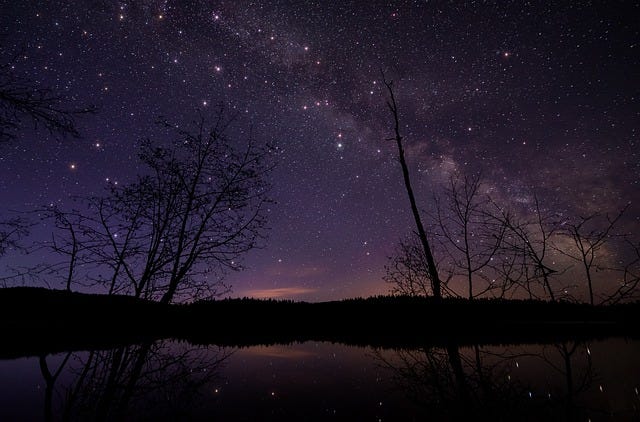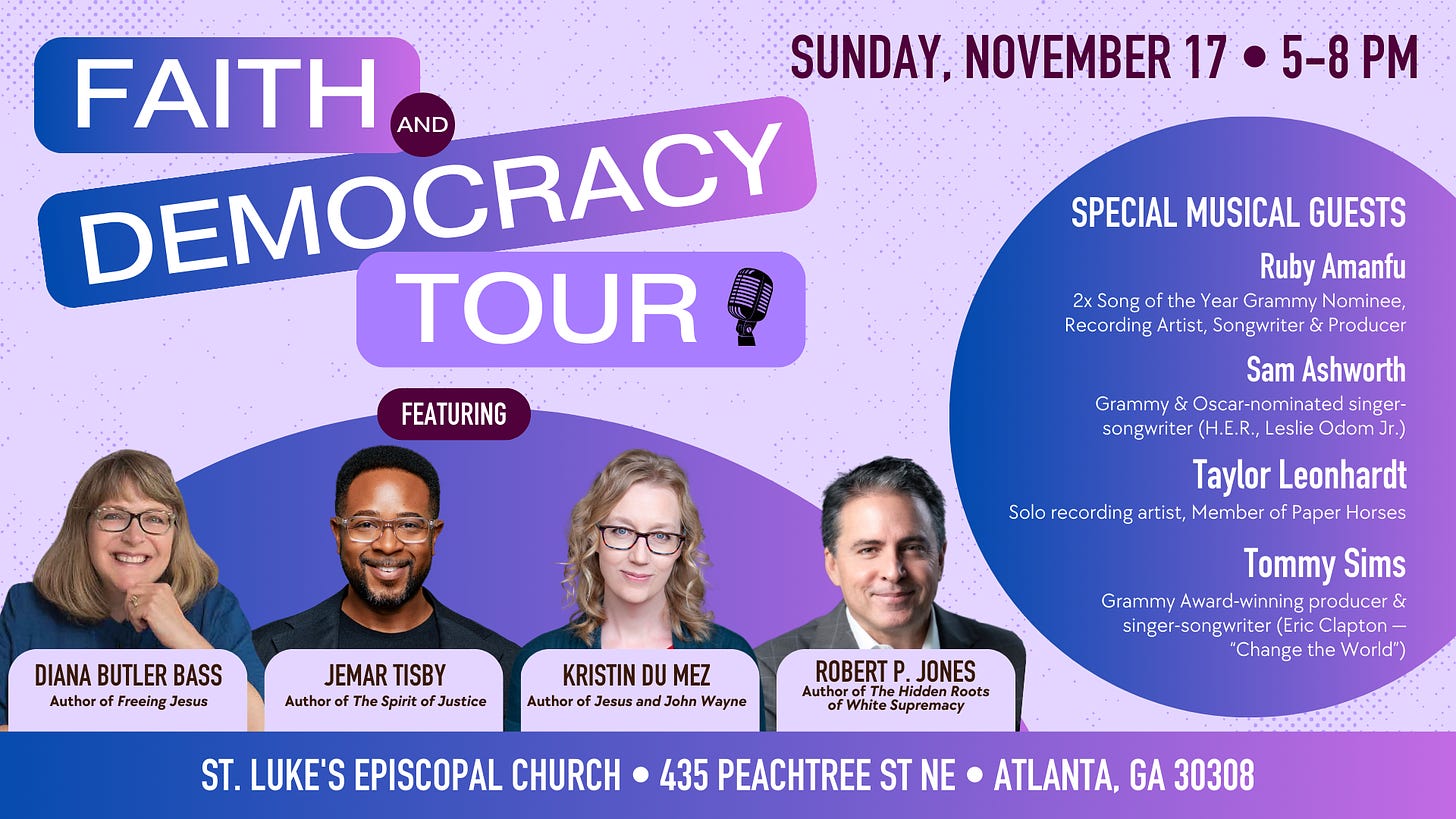“Only when it is dark enough can you see the stars.”
I hadn’t wanted to watch the concession speech, at least not right then. I was sleep-deprived and tired of screens after too much texting and doomscrolling. But a friend messaged me and said I needed to watch.
Clicking on the livestream, I listened to that now-familiar voice:
You have the capacity to do extraordinary good in the world. And so to everyone who is watching, do not despair. This is not a time to throw up our hands. This is a time to roll up our sleeves. This is a time to organize, to mobilize, and to stay engaged for the sake of freedom and justice and the future that we all know we can build together…. There's an adage a historian once called a law of history, true of every society across the ages. The adage is, only when it is dark enough can you see the stars. I know many people feel like we are entering a dark time, but for the benefit of us all, I hope that is not the case. But here's the thing, America, if it is, let us fill the sky with the light of a brilliant, brilliant billion of stars.
The light, the light of optimism, of faith, of truth and service.
Only when it is dark enough can you see the stars.
When I heard Kamala Harris deliver that line, it resonated with exactly how I was feeling. In fact, I had just said nearly the same thing (far less poetically) to a friend earlier in the day.
The darker things become, the clearer we can see the light.
Don’t get me wrong, I’d prefer a bit less darkness right now. I wish our efforts at illumination had kept us from plunging headlong into this pit of darkness. But here we are.
Of course, for those of us who are Christians, there’s the added bewilderment of knowing that our own co-religionists helped snuff out the lights.
Just after I listened to Harris’s concession speech, I got a call from Jim Wallis. I was eager to glean any wisdom from Jim, as someone who has been in this fight for more than half a century. He was remarkably calm and grounded, and although he’s been working to influence politics for his entire career, he focused in this moment not on political power but on the witness of the church. He reminded me what I already know: history teaches us that the church’s witness always shines brightest from the margins. Christian nationalism isn’t “the Church,” and power isn’t necessary for faithfulness. Christians misunderstanding this is part of what got us into this predicament in the first place.
With Kamala’s and Jim’s words swirling in my head, I also found myself hearing the voice of Rachael Denhollander. In reflecting on the evil of abuse, she, too, talks of darkness and light:
We can tend to gloss over the devastation of any kind of suffering but especially sexual assault, with Christian platitudes like God works all things together for good or God is sovereign. Those are very good and glorious biblical truths, but when they are misapplied in a way to dampen the horror of evil, they ultimately dampen the goodness of God. Goodness and darkness exist as opposites. If we pretend that the darkness isn’t dark, it dampens the beauty of the light.
If we pretend that the darkness isn’t dark, it dampens the beauty of the light.
When she was at Calvin University in 2021, she had this to say:
“We are commanded to care, to love those who are wounded, and to come to their defense. To love in this way and to speak out on behalf of others may be costly. . . . But we are called to bring the hope and light and truth of Christ into the darkness.
“To be given the grace to live sacrificially in this way is a gift.
“The gospel of Jesus Christ does not need your protection,” she reminds us. I quote this in Jesus and John Wayne and I consider it the moral heart of the book. Jesus simply asks for obedience, she says. “Obedience means that you pursue justice and you stand up for the oppressed and you stand up for the victimized, and you tell the truth…” And, she warns, “obedience costs.” “It means that you will have to speak out against your own community. It will cost to stand up for the oppressed, and it should. If we’re not speaking out when it costs, then it doesn’t matter to us enough.”
We know we are called to be lights in the darkness, and we know there may be a cost.
What that looks like will be different for each of us. What that looks like for me going forward isn’t entirely clear, but for now, it looks more speaking and more writing. If not to change, then to testify.
This afternoon, we are doing a special live webinar version of The Convocation Unscripted this afternoon at 5 so you can join in, chat with others, and ask us questions: Register for TCU+LIVE Webinar
We also decided that talking about faith and democracy is needed now more than ever. So…we decided to get back on the road. Georgia friends, come out and spend some time with us, listen to fabulous music, and connect with others in your community. Think of it as a way to make new friends for the days ahead.
Finally, your words of encouragement and solidarity on yesterday’s post meant more than you know.
And to those who sought a tangible way to reach out by becoming paid subscribers, and to my longtime paid subscribers, thank you. I know you don’t get anything special for the subscription, which means I know you aren’t doing it for yourselves, you’re doing it for me. At a time when so much is uncertain, the reminder that you have my back is an incredible source of encouragement. And, looking into the future, a very good thing to know. 🫶






"Of course, for those of us who are Christians, there’s the added bewilderment of knowing that our own co-religionists helped snuff out the lights." Boy do I feel this one! :(
So many of us are grateful for the leadership you've exemplified these past years - and for the sacrifices you (and your family) have made.
I needed to read each of these words today to keep finding ways to move forward and choose to keep shining brightly in the darkness. Thank you for your writing, your voice, and how you continue showing up.